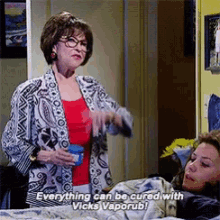Written by D.L.H. for “Feminist Disability Studies”
I am speaking from my own experiences with disability, specifically in the context of being an Mexican American. I learned far more about disability in Professor Laura Mauldin’s Feminist Disability Studies course than I ever had growing up, even with having individuals who are disabled within my family. Unfortunately, where I am heading with this is the fact that within my culture, there are still a lot of negative thoughts towards being an individual with a disability, let alone being able to accept the term “disabled.”
Even though the United States does okay in terms of talking about disability, within my home, disability is a word that is not often said due to the negative connotations that come along with it. My family would rather be dead than ever seek help for a disability they may have. An example of this is that they would rather avoid going to the doctor and potentially being deemed a “disabled person” than seek the help they may need. The reason for this is that in Mexican culture there’s an expectation that everyone should be at their best health at all times. Women need to take care of the family and men need to be strong in order to provide for the family, so if disability were to get in the way of this, they would rather reject the disability than try to make it a part of their day-to-day lives.
And yet, to my family, it is okay to be disabled if you were born with it, but if it is developed later on in life then that’s not a disability–that is a consequence of your actions. This is best explained by using my father as an example. My father spent his younger days living the life, finding himself “fucking around and finding out.” What he didn’t realize is that what he did when he was younger would catch up to him eventually. He sustained a back injury and instead of taking care of it, it got worse and worse. His back injury impedes his quality of life, but since my family would rather reject the idea of disability than accept it, he finds himself turning away from the advice he gets and feeling ashamed for trying to seek help for his injury.
We need our culture to take accountability for putting shame alongside the word disability. Individuals with a disability are still individuals–they are not just their disability.
I would like to continue to learn about disability, as well as tell individuals about what I have learned. If disability was talked about more often in Mexican culture, maybe the negative connotations that come along with it would disappear. We (Mexican individuals) have the responsibility to educate our people about these kinds of things. We need to be able to talk about disability within our families without the nasty stares.

In the media there are multiple videos making fun of our parents, and we can laugh at them. It’s funny to make fun of our parents due to the fact that they use vapo-rub as a solution to every sickness or that instead of accepting our pains, they blame the phone. “You’re not disabled, it’s because of the stupid phone.” Is it really? Does saying that automatically make us feel better? The same is true for home remedies: the vapo-rub can only do so much, Mom. It’s not something we can lather all over our bodies to make ourselves magically feel better.
But what’s important to understand after saying this is that they do have a responsibility to learn in order to grow as individuals and I feel like it’s our responsibility to help them do so.
Now that I know what I have to do as an immigrant’s daughter, it’s up to you, the reader, to decide to educate yourself and your family.
